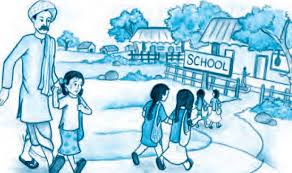What is RP in English language? What do you mean by Received Pronunciation (RP)? Linguistics, English literature
RP in English Language (Recieved Pronunciation)
 |
| Wikimedia commons |
RP is an abbreviation for 'Received Pronunciation'. It is the distinguished accent of English, typically British in nature and traditionally regarded as standard for British English. It is the accent of British social elite class and Aristocrats. It is also referred to as Queen's English or BBC English or Oxford English as they use or traditionally used this unique form of English. However BBC and Oxford University have discontinued with this tradition.
The term RP was coined by A J Ellis in 1869, however it began to be widely associated with accent of elite class only after Daniel Jones' work English pronunciation Dictionary (1924).
RP is not a dialect, hence it is not concerned with the vocabulary, grammar or style. Further, It is also un-identified with any region and is geographically independent. It is rather an accent with which we can make clues about speaker's social or educational background. All RP speakers speak standard English and avoid making non-standard grammatical constructions.
(Note: if you want us to write an article on any other topics please let us know in the comments section.)
RP's history is not that old. It is a young accent only about 200 years old. Though it is still used by social elites, Oxford University and BBC are no longer restricted to use only this standard variety. It is used by only 3% of the UK Population, yet it is widely studied and frequently described variety of English.
RP is categorised into three categories:-
1) conservative RP:-
2) Mainstream RP :-
it is a kind of neutral accent which doesn't signal any clue about speaker.
3) Contemporary RP :-
it is described as used generally by younger RP speakers.
{References:-
2) ThoughCo.}
READ MORE IN LINGUISTICS:-
.jpeg)

.jpeg)
.jpeg)

.jpeg)




Comments
Post a Comment
Your Views and Comments means a lot to us.